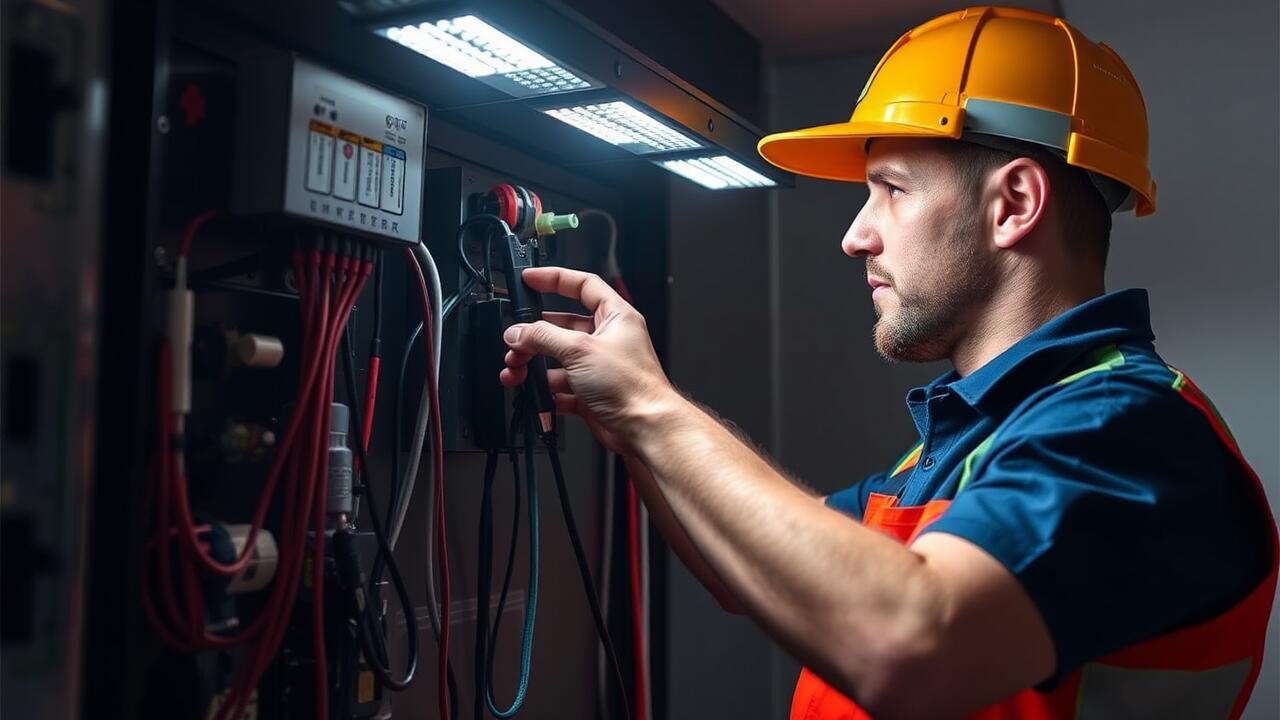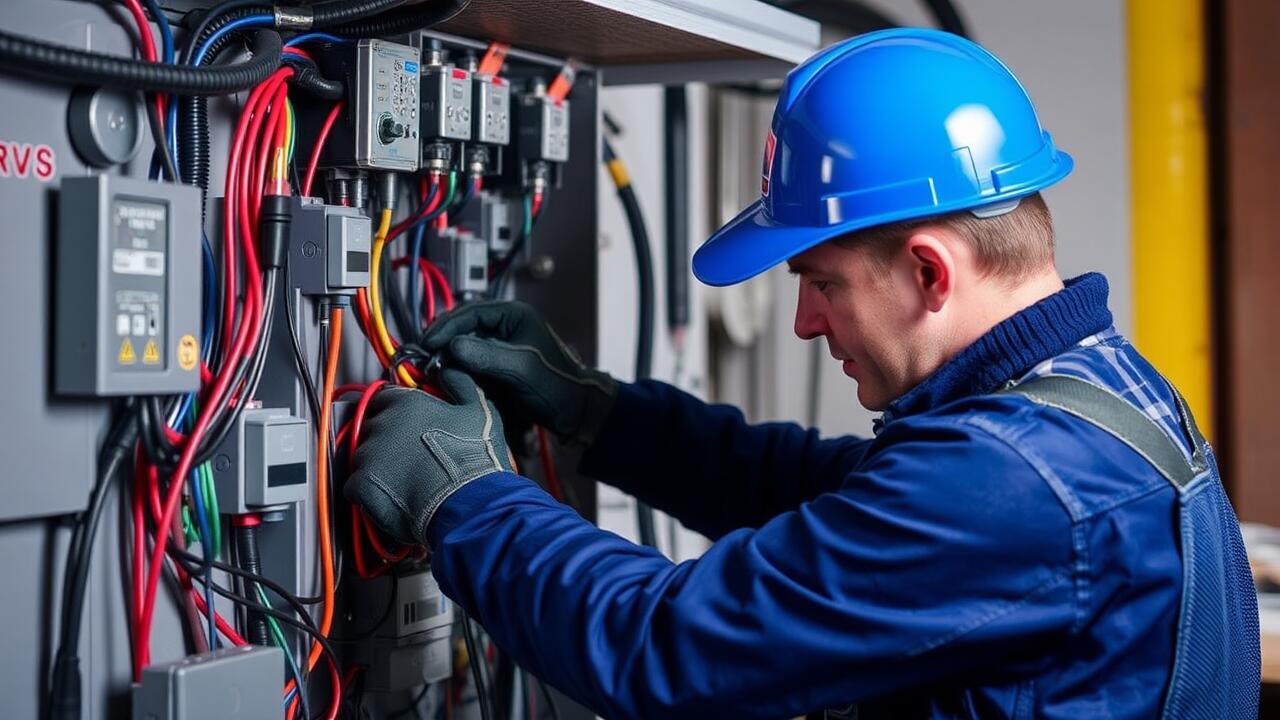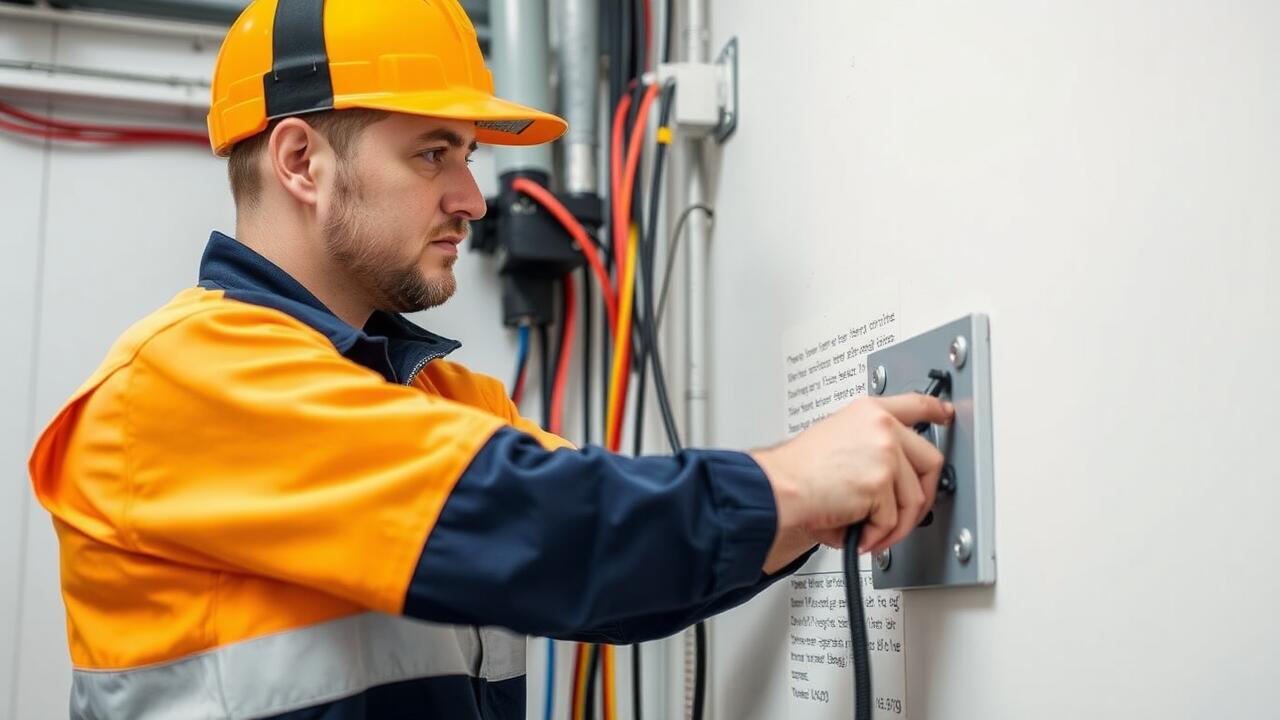
Seeing Sparks from Outlets or Switches
Seeing sparks from outlets or switches is often a clear indicator of electrical issues. Such occurrences can stem from loose connections, outdated wiring, or damaged insulation. Addressing this issue promptly is crucial to avoid potential hazards, including electrical fires. It is essential to refrain from using outlets that exhibit this behavior and consider seeking professional help immediately.
In Gulfton, Houston, electrical repairs should be a priority for homeowners who notice these alarming signs. Expert electricians can diagnose the problem and ensure that the wiring is safe and up to code. Taking swift action can prevent more significant issues down the road and ensure a safe living environment. Ignoring these sparks can lead to further complications, including equipment damage and increased risk of fire.
Immediate Actions to Take
If you notice sparks coming from an outlet or switch, it is crucial to take immediate action to ensure safety. First, avoid touching the affected area and unplug any connected devices if it is safe to do so. Next, turn off the power at the circuit breaker to eliminate any further risks. This quick response helps prevent potential fires and protects both you and your home. In West University Place, Houston Electrical Repairs can address this issue promptly.
After securing the area and cutting off the power, it is advisable to contact a professional electrician to inspect the wiring. An expert can assess the damage and provide necessary repairs to ensure everything operates safely. Do not attempt to fix the problem yourself unless you possess the proper training. Relying on qualified services in West University Place, Houston Electrical Repairs guarantees that the situation is handled correctly and mitigates the risk of future electrical hazards.
Feeling a Mild Shock from Appliances
Experiencing a mild shock from appliances can indicate an underlying issue with the electrical system. This sensation, often described as a tingle, may be caused by faulty wiring or grounding problems. When appliances are not properly grounded, electricity can escape from the device and create a hazardous situation. Regular inspections of your home’s electrical systems can help prevent these incidents before they escalate into something more serious.
If you encounter this issue, it’s important to address it promptly. Turn off the appliance and unplug it immediately to minimize risk. Seeking professional assistance is advisable, particularly from reputable services like Memorial, Houston Electrical Repairs. They can diagnose the root cause of the shock and ensure that your electrical system is safe and reliable.
Causes of Electrical Shocks
Electrical shocks often stem from faulty wiring or damaged cords. When wires become exposed or frayed, they can create unwanted connections with other conductive materials or surfaces. This lack of proper insulation exposes individuals to electrical currents. Another common cause is the use of outdated or improperly rated equipment, which may not handle voltage properly and can lead to dangerous situations.
Wet conditions also play a significant role in causing electrical shocks. Moisture can bridge the gap between electrical circuits and the human body, increasing the risk of injury. Ensuring that all outlets, especially in humid areas like bathrooms or kitchens, are equipped with Ground Fault Circuit Interrupters (GFCIs) is crucial. If you suspect electrical issues, it's best to consult professionals like Greater Heights, Houston Electrical Repairs for a thorough inspection and necessary repairs.
Discovering Warm or Hot Outlets
Warm or hot outlets can indicate underlying electrical issues that may pose a safety risk. A properly functioning outlet should remain cool to the touch during normal use. If you notice any abnormal warmth, it is essential to address the issue promptly as it could be a sign of excessive current flow or faulty wiring. Ignoring this warning could lead to more serious problems, such as electrical fires.
If you discover an outlet feeling warm or hot, consider contacting a professional for inspection and repairs. Alief, Houston Electrical Repairs is equipped to diagnose and resolve wiring issues effectively. Taking immediate action can help ensure the safety of your home and prevent potential hazards related to overheating outlets.
Safe Temperature Ranges for Outlets
Electrical outlets should ideally operate at room temperature. Any rise above this baseline could indicate underlying issues, such as poor connections or overloaded circuits. Outlets should not feel warm to the touch. Consistent exposure to excessive heat can lead to damage or even fire hazards, so monitoring their temperature is essential for maintaining safe electrical systems.
If you notice that an outlet is warm or hot, it is crucial to take immediate action. Turn off any devices plugged into that outlet and avoid using it until it has been assessed. Seeking professional guidance, such as contacting West University Place, Houston Electrical Repairs, can help identify and resolve the issue efficiently. Regular inspections and awareness of your electrical system will contribute to a safer home environment.
FAQS
What are the common signs of faulty wiring I should look out for?
Common signs of faulty wiring include seeing sparks from outlets or switches, feeling mild shocks from appliances, discovering warm or hot outlets, flickering lights, and frequently tripped circuit breakers.
What should I do if I see sparks coming from an outlet?
If you see sparks from an outlet, immediately unplug any devices connected to it, turn off the power at the circuit breaker, and contact a qualified electrician to inspect and address the issue.
Can faulty wiring cause electrical shocks?
Yes, faulty wiring can lead to electrical shocks. This can happen when there are loose connections, damaged wires, or improper grounding in your electrical system.
What temperature should electrical outlets be?
Electrical outlets should generally be cool to the touch. If an outlet feels warm or hot, it may indicate an underlying issue, and it’s advisable to have it checked by a professional.
How can I prevent faulty wiring in my home?
To prevent faulty wiring, ensure regular inspections by a licensed electrician, avoid overloading circuits, use appropriate wattage for light fixtures, and pay attention to any signs of electrical issues.




